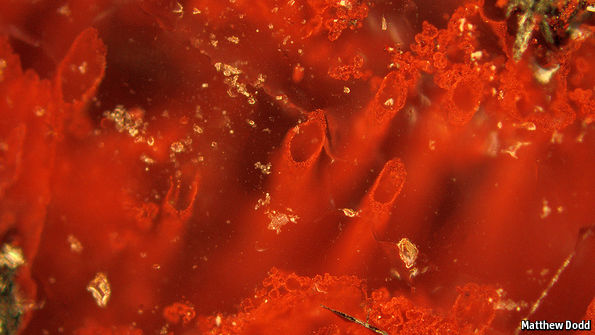A new fossil could push back the start of life on Earth

SCIENTISTS have a pretty good idea of how the Earth formed: it condensed, around 4.6 billion years ago, from the same cloud of dust and interstellar gas that gave birth to the sun and the rest of the solar system. They are less sure how and when life got going. Last year a group of researchers found evidence for stromatolites—small, layered mounds produced by photosynthesising bacteria—in rocks from Greenland that are 3.7 billion years old.
Now, though, the date of life’s debut may be pushed back even further. As they report in Nature, a group of researchers led by Dominic Papineau from University College London have found what they think is the signature of living organisms in rocks from Quebec that date back to between 3.8 and 4.3 billion years ago. Intriguingly, the sort of life that Dr Papineau and his colleagues think they have found is very different from the sort that built the stromatolites. This suggests that even very early in its existence, Earth was hosting several different kinds of living organism.
The rock in question is a 3-kilometre-long swathe on the eastern shores of the Hudson Bay…Continue reading
Source: Economist




